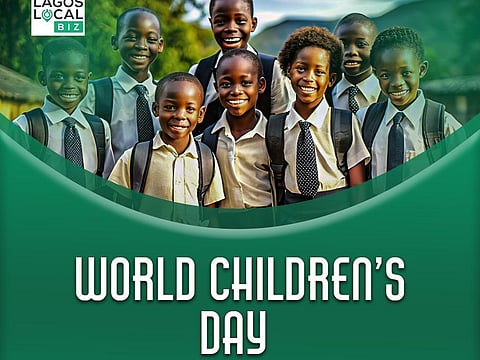

On May 27, every year, Nigeria emerges in a joyous celebration of Children's Day. It's a day filled with parades, laughter, and other activities that honour the nation's most precious resource (its children).
Interestingly, Children's Day is more than just a celebration; it's an amazing reminder of the responsibility we all share to build a brighter future for Nigeria's young generation.
This year's theme, "For Every Child, Every Right," speaks volumes about the aspirations for Nigerian children. It stressed the importance of making sure that every child has access to the fundamental rights enshrined in the Convention on the Rights of the Child. These rights consist of the following: access to a safe environment, quality education, healthcare, and the freedom to express themselves.
Meanwhile, the reality for many Nigerian children falls short of this ideal. There are still challenges that need to be addressed. Out-of-school children remain an important concern, and challenges like child labour and violence continue to threaten their well-being.
Consequently, positive actions are being taken to address the challenges. The government has implemented initiatives to increase access to education and improve school infrastructure. NGOs and community organisations are playing vital roles in advocating for child protection and providing essential services.
It is important to note that building a brighter future for Nigeria's children requires a collective effort.
The following are what we can all do:
Families: The family plays a great role in shaping the future of Nigeria's children. Families should live with integrity; children are keen observers. They should be honest, fair, and responsible in their own actions. Also, it is the responsibility of the family, as the first institution of society, to create a safe space where children feel comfortable talking about their problems and dreams. Families should advocate for their children's well-being, speaking up for rights, whether it is at school or in their community.
Educators: Teachers should endeavour to maintain open communication and collaboration with families to work together to create a consistent and supportive learning environment for the child. They should also create a nurturing and inclusive classroom environment where all students feel valued and respected for their unique talents and perspectives.
Government: The government has numerous roles to play in order to build a brighter future for Nigeria's children. They have to prioritise policies that guarantee children's rights and invest in initiatives that support their well-being, like allocating sufficient resources to improve school infrastructure, providing quality learning materials, and making education more accessible, providing healthcare facilities especially in rural areas. Also, tackling corruption ensures that allocated resources reach the intended beneficiaries, maximising the impact on children's well-being.
Communities: Communities are the bedrock of Nigerian society, and they have a powerful role to play in shaping the future of their children. They must create safe spaces for children to play and learn, educate their members on child abuse signs, and encourage reporting suspected cases to the authorities. However, communities can also act as watchdogs by monitoring government programmes and advocating for policies that prioritise children's well-being.
Faith-based organisations: Religious institutions hold an important position in Nigerian society and play a crucial role in building a brighter future for the country's children. They can provide a strong moral foundation for children, instilling values like honesty, compassion, respect, and forgiveness. This ethical framework can guide their choices and actions throughout life. Also, religious institutions can be powerful advocates for peace and tolerance within communities. They can bridge divides and foster interfaith dialogue, creating a more peaceful environment for children to grow up in.
Imagine a Nigeria where every child has the chance to reach their full potential. A future built on the foundation of a loving family, quality health care, a safe environment, quality education, and the freedom to dream. This future is within reach. By working together, united in our commitment to children's rights, we can make it a reality. Let's build a brighter future for Nigeria's children, one where every child can shine.
